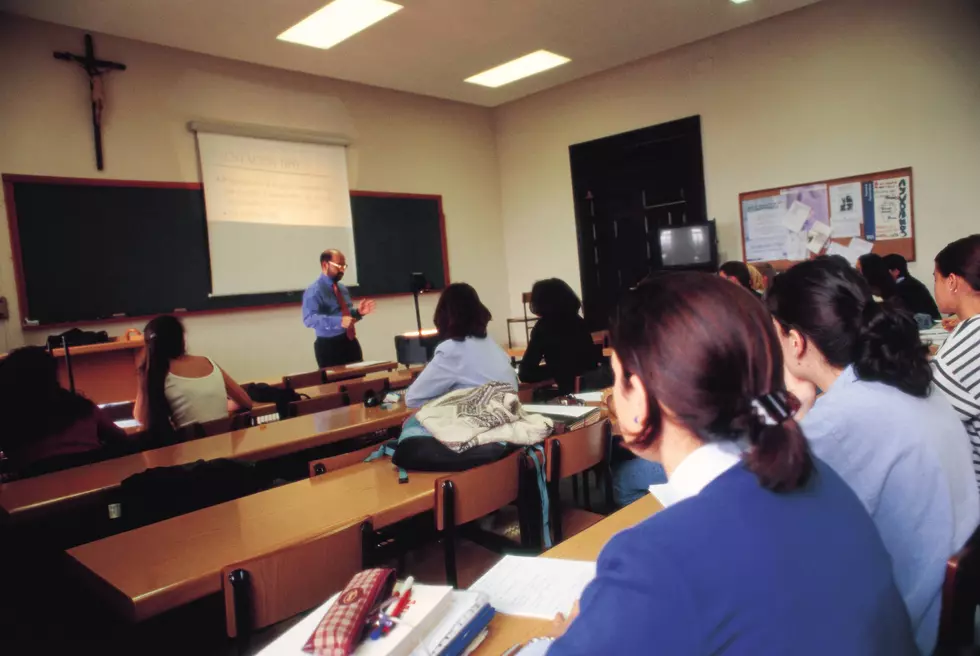The Rising Costs of College [SERIES]
This is part two of a week-long series on higher education costs in New Jersey. Read the entire series here.
The statistics show a bachelor's degree is a great thing to have when considering income and actually holding a job, but a college education certainly isn't free. The costs have skyrocketed over the past several years, to a point that's made the four-year journey almost impossible for many New Jersey families.
According to a yearly survey conducted at 283 four-year colleges across the nation, 67 percent of incoming freshmen this year were influenced by finances when it came to choosing which school they'd attend.
The UCLA survey also found that more college students are deciding to live with family instead of in the dormitories on campus.
That choice is not surprising, given the latest figures from the College Board. Including tuition, fees, room and board, the average cost of a four-year public college in 2011-2012 jumped six percent to $17,131. A private institution had an average price tag north of $35,500.
In 2010-2011, according to the College Scorecard provided by the federal government, The College of New Jersey ranked in the top ten nationwide for highest net price of four-year public institutions at $18,311. New Jersey was not mentioned on the list of 70 schools with the lowest net price.
Dr. Eugene Cornacchia, President of Saint Peter's University in Jersey City, said the rate of tuition increases has slowed dramatically over the past few years, and colleges are trying to stem the growth even further. However, he said there are "realities to running a higher education institution" that can't be avoided.
On the morning of Dr. Cornacchia's chat with Townsquare Media, he was informed that health insurance costs for campus employees could spike by 36 percent next year.
He also pointed to rising energy costs and the need to offer competitive salaries so the best talent remains with the school.
"You have all those factors combine and guarantee some increase in tuition," Cornacchia explained. "The key is to try to keep that increase as low as possible."
He continued, "We're not talking about gold-plated faucets and things like that. Most institutions in New Jersey, I think, you'll find are very cognizant of their responsibility to be good stewards of students' tuition dollars."
Still, Cornacchia acknowledged that he has noticed increasing stress on families trying to afford a college education. Saint Peter's University, and other schools in the state, have seen a huge increase in the number of students who appeal for special aid.
Michael Klein, Executive Director of the New Jersey Association of State Colleges and Universities, said aid on the state and federal level is why the "sticker price" of a college shouldn't scare anyone away.
"What you see on the screen is not necessarily what you're going to pay," said Klein.
What can be done to reverse the trend of spiking college costs? Possibly nothing, but Dr. Cornacchia suggested institutions will have to become more flexible and creative in how they allow students to attain credits. Saint Peter's University has developed strong relationships with community colleges to create more seamless transitions for transfer students. Online courses have also become a starter for many students who can't afford the full-time treatment at first.
A bachelor's degree, of course, isn't the only option out there. It's definitely the most expensive, though, especially when you add the debt students are buried under after graduation. Tomorrow, we'll look at the alternatives for students who simply can't afford the traditional four-year route.
More From New Jersey 101.5 FM








